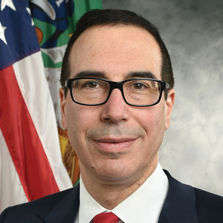
The near-total shutdown of business travel demand in 2020 put travel suppliers of all sizes in dire financial straits. There were casualties. Thousands of employees were laid off or furloughed, dozens of hotels and small travel agencies closed. But given how deeply demand was slashed, it's not hard to imagine a scenario in which outcomes were even worse, with large suppliers failing amid a collapsing industry.
That such a scenario hasn't happened is due in part to the financial support delivered by the federal governments in many countries to their business travel suppliers. In the U.S., that aid was authorized by the Coronavirus Aid, Relief, and Economic Security Act, better known as the CARES Act, which along with other mechanisms that allowed travel suppliers of all sizes to access the funding in some cases necessary to maintain staff and continue operations.
Key mechanisms authorized by the CARES Act include the Paycheck Protection Program, which authorized forgivable loans to suppliers provided they kept employees on the payroll, and the Payroll Support Program, an airline-specific mechanism that enabled carriers to tap billions of dollars in loans. Hundreds of industry suppliers tapped these and other programs to stay in business during a devastating year and position themselves to be ready when business travel begins to return.
But key provisions of the CARES Act expired Oct. 1, and suppliers have clamored for additional support. Congress and the Trump administration at press time have been unable to reach a deal on another round of support; it's unclear whether such a deal will happen before Joe Biden becomes president on Jan. 20.
Citing a single executive for the passing of the CARES Act is a thorny endeavor, given the agreement reached among the Trump administration, a Democratic House and a Republican Senate. Reports at the time cited Treasure Secretary Steven Mnuchin's role in persuading the Senate to pass a substantial relief deal by warning them of the potential economic ruin if they did otherwise.